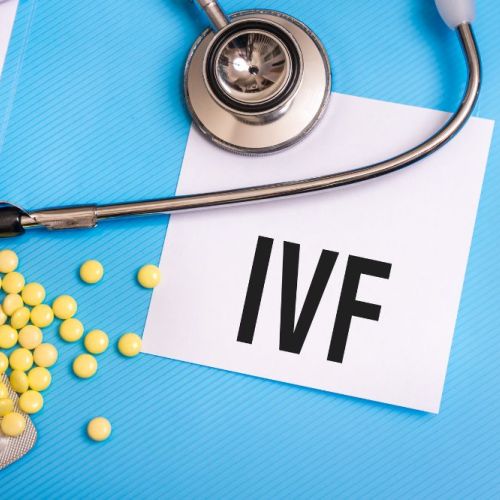Artificial Insemination Pros and Cons

Artificial insemination is one of the most common types of fertility treatment, and it’s one of the first types of fertility treatment your doctor may recommend if you have unexplained infertility. It may also be recommended for couples with male factor infertility which is related to low sperm count or poor sperm motility. This procedure also makes it possible for people to attain pregnancy using donor sperm.
It makes sense to gather as much information as you can about fertility treatments before making a decision on what to do next. Those who are interested in fertility options often want to know about artificial insemination pros and cons. The knowledgeable and compassionate staff at the Center for Reproductive Health is available to answer whatever questions you may have.
Pros of Artificial Insemination
Artificial insemination is an outpatient procedure that’s safe and simple and can be done in just a few minutes. Eggs don’t need to be removed from the body, which makes it a less invasive procedure than in vitro fertilization (IVF). The sperm that’s used can be from your partner or a donor, and the sperm is washed and treated to try to enhance sperm quality before it’s implanted into the woman’s uterus.
The purpose of the procedure is to increase the number of sperm that can travel to the fallopian tubes. Compared to other forms of assisted reproductive technology, artificial insemination has fewer side effects. It’s a less expensive form of fertility treatment since there’s less involved and fewer visits are needed. The chance of getting pregnant using this form of treatment is higher than just intercourse.
Cons of Artificial Insemination
For some women, artificial insemination isn’t likely to work, such as women who don’t have functional fallopian tubes or women who have problems ovulating even when using hormones to stimulate ovulation. The success rates of artificial insemination are somewhat lower than IVF.
When hormones are used for ovarian stimulation, more than one egg may be produced, which may result in getting pregnant with multiples such as twins or triplets. There’s no way to control how many eggs develop or are fertilized. Some people experience light spotting or mild cramping after the procedure has been done. There’s a rare chance of developing an infection.
There’s no guarantee of success by undergoing artificial insemination or any other type of fertility treatment. Some women undergo several rounds of artificial insemination before successfully attaining pregnancy, but it can be mentally and emotionally stressful if it doesn’t work right away.
Choosing a Form of Fertility Treatment
If you’re living with infertility, the best way to determine what form of fertility treatment might be a good choice for you is by talking to fertility experts. Reviewing your family history and undergoing medical testing may help to pinpoint the cause of infertility and the best approach to treatment.
The Center for Reproductive Health has proven high success rates in helping those who are struggling with fertility challenges. Call today with questions or to schedule a consultation.
Eliran Mor, MD
Reproductive Endocrinologist located in Encino, Santa Monica, Valencia & West Hollywood, CA
FAQ
Reproductive endocrinology and Infertility is a sub-specialty of Obstetrics and Gynecology. In addition to managing medical and surgical treatment of disorders of the female reproductive tract, reproductive endocrinologist and infertility (REI) specialists undergo additional years of training to provide fertility treatments using assisted reproductive technology (ART) such as in vitro fertilization.
Reproductive endocrinologists receive board certification by the American Board of Obstetrics and Gynecology in both Obstetrics and Gynecology and Reproductive Endocrinology and Infertility.
In general, patients should consider consulting with an REI specialist after one year of trying unsuccessfully to achieve pregnancy. The chance of conceiving every month is around 20%, therefore after a full year of trying approximately 15% of couples will still not have achieved a pregnancy.
However, if a woman is over the age of 35 it would be reasonable to see a fertility specialist earlier, typically after 6 months of trying.
Other candidates to seek earlier treatment are women who have irregular menses, endometriosis, fibroids, polycystic ovary syndrome (PCOS), women who have had 2 or more miscarriages, or problems with the fallopian tubes (prior ectopic pregnancy).
Approximately 1/3 of the time cause for infertility is a female factor, 1/3 of the time a male factor, and the remaining 1/3 a couples’ factor.
At CCRH, we emphasize the importance of establishing a correct diagnosis. Both partners undergo a comprehensive evaluation including a medical history and physical exam.
Furthremore, the woman’s ovarian reserve is assessed with a pelvic ultrasound and a hormonal profile. A hysterosalpingogram (HSG) will confirm fallopian tube patency and the uterine cavity is free of intracavitary lesions. A semen analysis is also obtained to evaluate for concentration, motility, and morphology of the sperm.
Additional work up is then individualized to direct the best possible treatment option for each couple.
In vitro fertilization (IVF) is the process that involves fertilization of an egg outside of a woman’s body.
The process starts with fertility drugs prescribed to help stimulate egg development. In your natural cycle, your body is only able to grow one dominant egg, but with stimulation medication we can recruit multiple eggs to continue to grow. After about 8-10 days of stimulation, the eggs are surgically retrieved and then fertilized with sperm in a specialized laboratory. Fertilized eggs are then cultured under a strictly controlled environment within specialized incubators in the IVF laboratory for 3-5 days while they develop as embryos. Finally, embryos (or an embryo) are transferred into the uterine cavity for implantation.
Before deciding if IVF is the right choice, it’s important to sit down with an REI specialist to discuss available treatment options. For some people, other methods such as fertility drugs, intrauterine insemination (IUI) may be the best first choice treatment. At CCRH, we believe each individual couple is unique and not everyone needs IVF.
While not painful, the fertility medications may some side effects including headaches, hot flashes, mood swings, and bloating. The injection sites may also bruise.
Unfortunately, no. Many people think once they start IVF it’s a matter of time that they will be pregnant and have a baby. But according to national statistics per the Society of Assisted Reproduction (SART), on average 40% of assisted reproduction cycles achieve live births in women under age 35. The chances of success then continue to decrease with advancing age.
At CCRH, we employ only evidence-based interventions to ensure patient safety and optimal outcome. While we cannot guarantee a baby, we guarantee that you will receive the best, most advanced, personalized care to help you maximize your chance of a baby.
The average IVF success rate (success measured in live birth rate) using one’s own eggs begins to drop around age 35 and then rapidly after age 40. This is due to the decline in egg quantity and egg quality as a woman ages.
Our clinic’s success rate consistently beats the national average year after year.
Individual insurance plans often do not have any coverage for infertility treatments. If you have a group plan, you can call members services to see if they have coverage for infertility (including consultation/workup and IVF).
After your consultation with our REI specialist, one of our dedicated account managers with sit with you to go over the cost of treatment.




